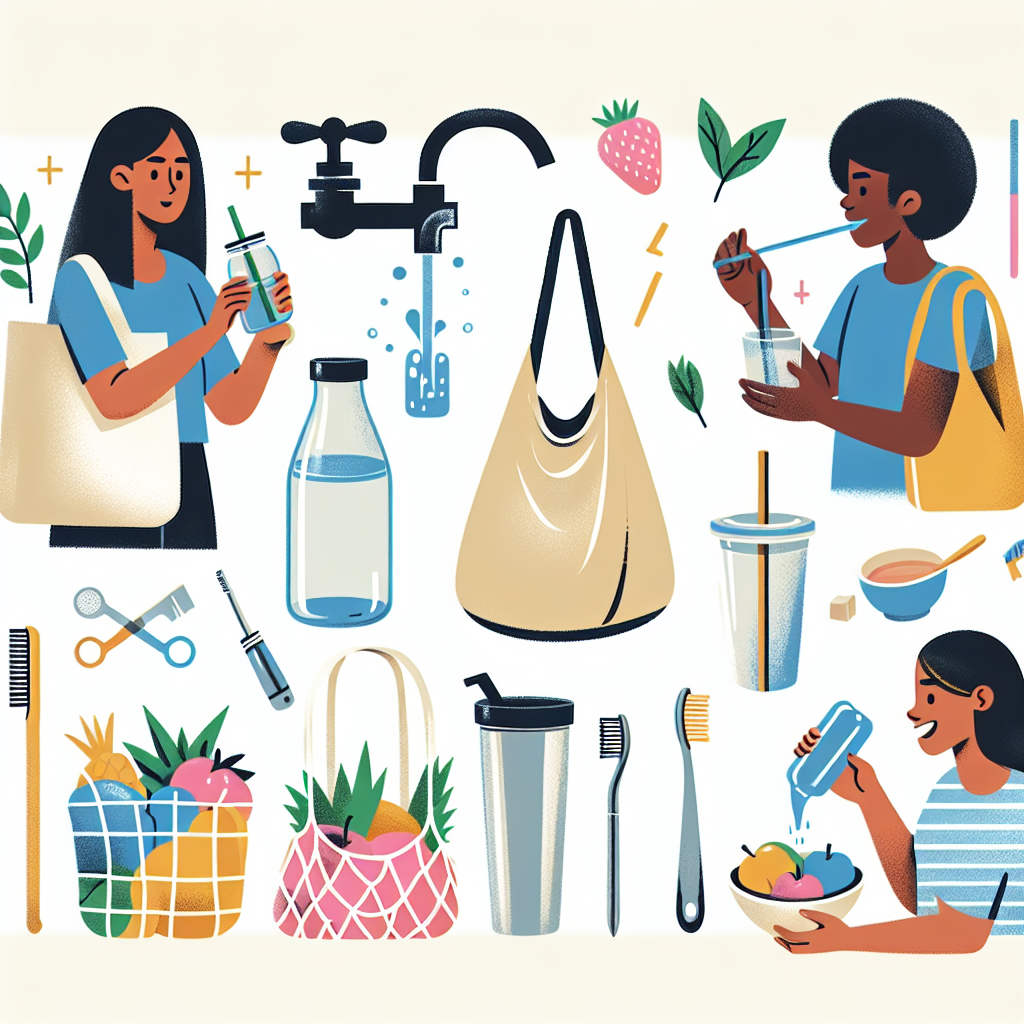-
Table of Contents
- Introduction
- The Plastic Problem in Indonesia
- 1. Reduce Single-Use Plastics
- 2. Say No to Plastic Packaging
- 3. Support Local Initiatives
- Plastic-Free Alternatives
- 1. Bamboo Toothbrushes
- 2. Reusable Menstrual Products
- 3. Eco-Friendly Cleaning Products
- Spreading Awareness
- 1. Social Media Campaigns
- 2. Community Events and Workshops
- 3. Collaboration with Local Organizations
- Summary
Introduction

Plastic pollution has become a global crisis, and Indonesia is no exception. With its vast population and rapid economic growth, the country has seen a significant increase in plastic waste generation. However, there is a growing movement in Indonesia to live a plastic-free lifestyle. In this article, we will explore some tips on how to embrace a plastic-free life in Indonesia and contribute to a cleaner and healthier environment.
The Plastic Problem in Indonesia
Indonesia is the second-largest contributor to marine plastic pollution worldwide, with an estimated 1.29 million metric tons of plastic waste entering the ocean each year. The country’s reliance on single-use plastics, inadequate waste management infrastructure, and lack of awareness about the environmental impact of plastic have all contributed to this alarming situation.
1. Reduce Single-Use Plastics
One of the most effective ways to live a plastic-free life is to reduce the consumption of single-use plastics. These include items like plastic bags, straws, cutlery, and water bottles. Instead, opt for reusable alternatives such as cloth bags, stainless steel straws, bamboo cutlery, and refillable water bottles. By making these small changes, you can significantly reduce your plastic footprint.
2. Say No to Plastic Packaging
Plastic packaging is a major contributor to plastic waste. When shopping, try to choose products with minimal or no plastic packaging. Look for alternatives like bulk bins or stores that offer package-free options. Additionally, bring your own containers or bags when buying groceries or other items to avoid unnecessary plastic packaging.
3. Support Local Initiatives
Many local initiatives and businesses in Indonesia are working towards reducing plastic waste. Support these initiatives by purchasing products from eco-friendly brands and businesses that prioritize sustainable packaging and practices. By supporting local initiatives, you not only contribute to reducing plastic waste but also encourage others to follow suit.
Plastic-Free Alternatives
Living a plastic-free life requires finding alternatives to commonly used plastic items. Here are some suggestions for plastic-free alternatives that are readily available in Indonesia:
1. Bamboo Toothbrushes
Replace your plastic toothbrush with a bamboo toothbrush. Bamboo is a sustainable and biodegradable material that can be composted after use. Many eco-friendly stores in Indonesia offer bamboo toothbrushes as an alternative to plastic ones.
2. Reusable Menstrual Products
Consider switching to reusable menstrual products like menstrual cups or cloth pads. These alternatives not only reduce plastic waste but also save you money in the long run. Many Indonesian brands now offer eco-friendly menstrual products that are easily accessible.
3. Eco-Friendly Cleaning Products
Traditional cleaning products often come in plastic packaging and contain harmful chemicals. Look for eco-friendly cleaning products that come in refillable or biodegradable packaging. Alternatively, you can make your own cleaning products using natural ingredients like vinegar, baking soda, and essential oils.
Spreading Awareness
In addition to adopting a plastic-free lifestyle yourself, it is essential to spread awareness and educate others about the plastic problem in Indonesia. Here are some ways you can contribute:
1. Social Media Campaigns
Utilize social media platforms to raise awareness about plastic pollution and share tips on living a plastic-free life. Engage with your followers and encourage them to join the movement by using hashtags like #PlasticFreeIndonesia or #BebasPlastik.
2. Community Events and Workshops
Organize or participate in community events and workshops focused on plastic pollution and sustainable living. These events provide an opportunity to educate others, share experiences, and inspire positive change.
3. Collaboration with Local Organizations
Collaborate with local environmental organizations and NGOs that are actively working towards reducing plastic waste. By joining forces, you can amplify your impact and reach a wider audience.
Summary
Living a plastic-free life in Indonesia is not only beneficial for the environment but also for our own well-being. By reducing single-use plastics, saying no to plastic packaging, supporting local initiatives, and finding plastic-free alternatives, we can make a significant difference in tackling the plastic problem. Spreading awareness through social media campaigns, community events, and collaborations with local organizations further strengthens our collective efforts. Let us embrace a plastic-free lifestyle and inspire others to join us in creating a cleaner and healthier Indonesia.
